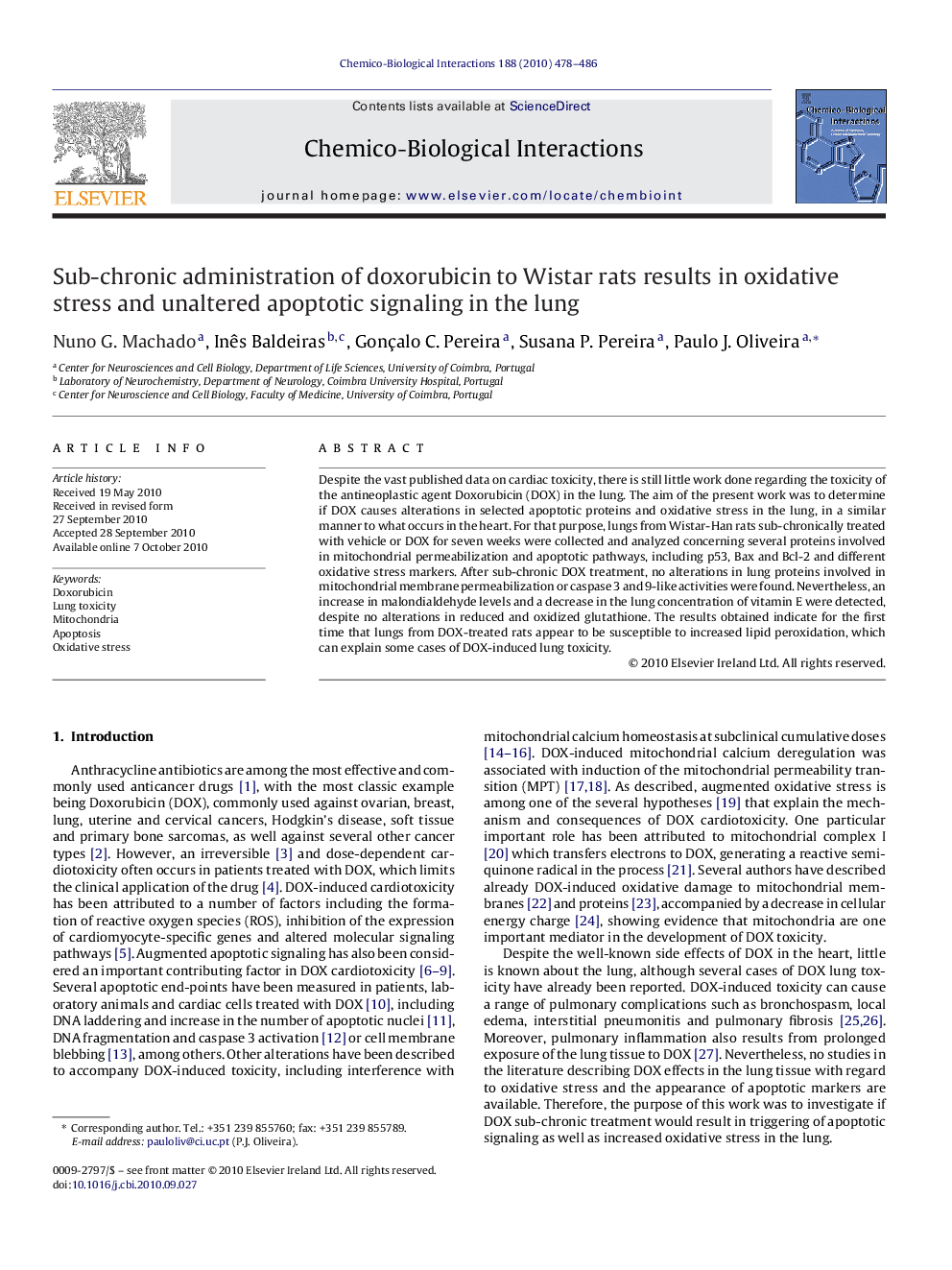| Article ID | Journal | Published Year | Pages | File Type |
|---|---|---|---|---|
| 2580956 | Chemico-Biological Interactions | 2010 | 9 Pages |
Despite the vast published data on cardiac toxicity, there is still little work done regarding the toxicity of the antineoplastic agent Doxorubicin (DOX) in the lung. The aim of the present work was to determine if DOX causes alterations in selected apoptotic proteins and oxidative stress in the lung, in a similar manner to what occurs in the heart. For that purpose, lungs from Wistar-Han rats sub-chronically treated with vehicle or DOX for seven weeks were collected and analyzed concerning several proteins involved in mitochondrial permeabilization and apoptotic pathways, including p53, Bax and Bcl-2 and different oxidative stress markers. After sub-chronic DOX treatment, no alterations in lung proteins involved in mitochondrial membrane permeabilization or caspase 3 and 9-like activities were found. Nevertheless, an increase in malondialdehyde levels and a decrease in the lung concentration of vitamin E were detected, despite no alterations in reduced and oxidized glutathione. The results obtained indicate for the first time that lungs from DOX-treated rats appear to be susceptible to increased lipid peroxidation, which can explain some cases of DOX-induced lung toxicity.
